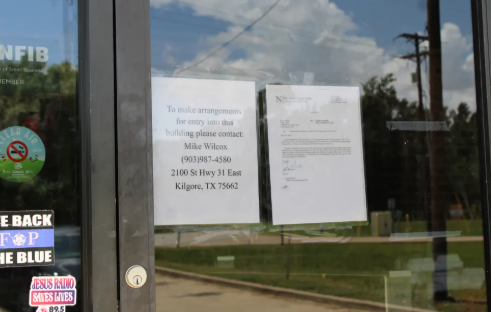Pool: Metaphors, malaphors and punaphors
Published 2:00 pm Monday, December 11, 2023

- Frank T. Pool
We can’t get by without metaphors. They are the very air that keeps language alive. There — I just used one.
A metaphor, remember, is an implicit comparison between two unlike things whose juxtaposition makes intuitive but not literal sense. Metaphor is the cornerstone of poetry and imaginative prose. (Another metaphor.)
When I was in 10th grade, my English teacher gave a quiz that asked us to define “metaphor.” I replied, “What’s a metaphor? For grazing cattle.” You can see where this column is going. Be metaphor warned.
Sometimes we get tangled up in metaphors, and the result is known as a mixed metaphor. They often get comical. “She was watching me like I was a hawk” is an example. “He’s a little green behind the ears” is another. Two conventional metaphors get mashed up into something silly: “Don’t judge a book before it’s hatched.”
Then there’s the malapropism. Many years ago I taught Richard Brinsley Sheridan’s 1775 play “The Rivals.” One of the characters is named Mrs. Malaprop, and she famously misuses words: “She’s as headstrong as an allegory on the Nile! I will quite illiterate him from my memory!”
In Norman Lear’s sitcom “All In the Family,” character Archie Bunker describes going to a Catholic church and comments on “the smell of burning incest.” Archie was a bit fuzzy on religion; he referred to Orthodox Jews as “off-the-docks Jews.”
Even politicians get into the malaprop act. A former prime minister of Australia once said that nobody, regardless of how well-educated, could be the “suppository of all wisdom.” Former Texas Gov. Rick Perry referred to states as the “lavatories of innovation.” Marjorie Taylor Greene has referred to Nazi-style police as “gazpacho.”
Baseball legend Yogi Berra was the master of malaprop. He described a switch hitter who could hit either left or right handed as “amphibious.” Commenting on politics, he noted that “Texas has a lot of electrical votes.”
One of the most common aspects of humor is the unexpected. An aphorism is a folk saying. When we expect a conventional expression or cliché, and find it is jammed up against another that doesn’t quite fit, linguistic fun and folly follows.
A malaphor mixes two aphorisms in a comical way. The term was coined by Lawrence Harrison in 1976. He recognized something about the way people talk, and he hit the nail right on the nose. There’s a fellow nowadays who runs a blog about them. He calls himself “The Malaphor King.”
“You’ve opened a can of worms, now lie in it.” We sort of understand what’s going on here, but the imagery is ridiculous. If you say, “that’s no skin off my teeth” you might convey the general lack of concern, at the risk of some silliness. “Out of the woods and into the fire” mixes “we’re not out of the woods yet” and “out of the frying pan and into the fire.”
Gyles Brandreth gets credit for “I can read him like the back of my book,” and “it sticks out like a sore neck,” and “he’s burning the midnight oil from both ends.” Like many writers, he may have collected rather than coined these, but he deserves thanks for writing them down.
The sainted (but not-yet-snuffled-off-this-moral-curl) Richard Lederer, author of many books about the lighter side of language, has offered these: “It’s time to swallow the bullet,” and “let dead dogs lie,” and “he’s between a rock and the deep blue sea.”
Language has many uses; its unintended uses may end up being fun. “We could stand here until the cows turn blue.” Or, alternatively, somebody might say, “the sacred cows will come home to roost.” Something impossible won’t happen “until the pigs freeze over.” “Does a wild bear [poop] in the wind?” I guess this is barnyard humor.
Malapropisms and mixed metaphors can be funny, but what do you get when you combine the two? The basket offspring of the infestuous union is a special kind of malaphor. Sometimes a pun is involved, so be wear of them.
To distinguish them from other malaphors, I’m going to make an ad hockey move, and call it a punaphore. I just coined the term, which may be poolish of me.
“It’s like looking for a needle in a hayride.” “You could have knocked me over with a fender.” “They are diabolically opposed.” “He’s a wolf in cheap clothing.”
You get the idea. Maybe it’s time to decease and desist.






